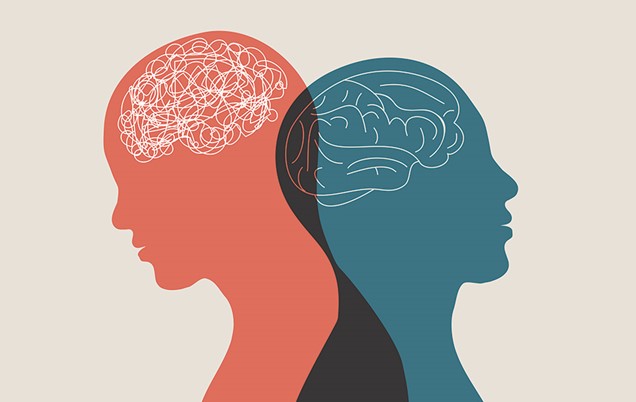Advice hub. Mental Health Overview.
Anyone who has ever worked in hospitality knows just what a high-pressure environment it can be.
That’s why it’s important to look after our minds.
Society is now better at encouraging people to seek help if they are struggling with mental health issues. But many people only think to look after their mental health when they feel at crisis point.
So what are mental health problems? And how do we identify what is causing them?
What are mental health problems?
Mental health problems are actually quite common, affecting a quarter of all the people in the UK. Mental illness affects the way in which people think, feel or behave and can create issues in their work, social and family lives.
They include:

If you suffer from sadness for long periods of time, then this can be classed as depression. People with depression may also find their appetite and sleep are affected, they suffer from feelings of exhaustion and a lack of interest in everyday life, often feeling that life is pointless.
Sufferers have feelings of exaggerated worry and tension, which may also be accompanied by physical symptoms, such as shaking, sweating and headaches.
The most common eating disorders are those related to binge eating, where sufferers eat compulsively.
Physical and psychological dependence on substances such as drugs or alcohol or behaviours such as gambling or shopping.
What causes mental health problems?
The root cause of mental health issues varies from person to person. It is not usually related to one factor alone, but often the effect of a range of things that happen over a period of time.
Research has suggested that mental health can be affected by a combination of physical, psychological and environmental factors with stress levels also having a huge impact on how we feel.
Serious illness or even a bout of flu can trigger an episode of depression. This is usually a normal reaction that lifts with time but if the feelings of depression continue or worsen then seek professional help.
The psychological state of a person can affect their mental wellbeing. For example, traumatic experiences or significant life events can affect mental health. These can include divorce, the death of a close friend, or redundancy.
How and where we live can affect people mentally. The workplace is an important factor too. If you feel under sustained pressure at work, or don’t enjoy it, this can have a bearing on how you fare mentally. Those who have a good support network provided by colleagues, friends and family, have been shown to be more resilient as they can help to alleviate feelings of isolation when times get hard. And those in work might feel they are valued and needed which has a positive benefit on mental health.
Sustained or overwhelming stress levels have a huge bearing on mental health. While a certain amount of stress can give you drive to achieve and perform well, it can become destructive when there is too much.
If you feel your work is causing problems it can help to speak to your manager and hard though it might feel, there is help available.
Remember you can call the EAP Assistance Line or HA Helpline 24/7 for emotional support if you feel that stress is overwhelming you. See the numbers to call below.
Hospitality Action Helpline.
0808 802 0282 (24/7)
EAP Assistance Line.
UK: 0808 802 2111 (24/7)
Irl: 1800 911 121 (24/7)
Support Platform.





